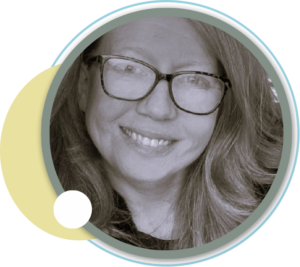“Find like-minded people who are on the same page as you, and then lift each other up.”
Nahnatchka Khan
Is your twenty-something adult child subsisting on mac and cheese without showering for a week at a time and living in your basement, only connecting with people virtually seven by twenty-four, usually in the middle of the night in your time zone? I thought mine was! Fortunately, I learned that while I thought he was checked out of life, he actually was figuring out his life as he always has, on his own schedule.
The community our son was accessing was shrouded as his online gaming community, which scared the living daylights out of me. Were these people simply the older version of what I feared my own son would become, living decades in their parents’ homes eating mac and cheese and emitting weeks old body odor without completing an education or holding a job? There was only one way to find out—I got myself into his online conversations to get to know some of these people. In our situation, our son made this easy for us because he went to meet some of these people in person for a live action role play (LARP) version of his online gaming experiences. Three or four times a year, one of these online gaming folks put together a live version of the events at his family tree farm in southern Oregon for 80-100 players. At this point the founder of our son’s LARP has created a significant entertainment business around the LARP.
You can bet that when our 18-year-old son said he wanted to go to Oregon for a long weekend, we didn’t just throw him on a plane. I made my husband go with him. Not for the entire long weekend. Even my husband has his limits. But for the first live event our son attended, they flew together to Oregon and my husband went to the tree farm to see the place and the people for himself. The husband reported back that there were people from all walks of life. From the vehicles parked there, Teslas to Toyotas to Harleys, and the people he spoke to, the husband assessed that there was everything from college and grad students to retired electricians, software developers, and many others in between. Nothing to be afraid of, and our son was definitely with his tribe.
Trust, but verify.
I was relieved but these new interactions for my vulnerable son was still foreign to this helicopter mom. When the next event in Oregon hit our son’s calendar, I scheduled a visit to Oregon State for me and my son to investigate college options. That was a great opportunity to be able to see the tree farm for myself. Once again, the son surprised me with his very real connections. One of his buddies from the tree farm was a graduate TA at OSU. When our son told him (via Discord, of course) we were coming to campus for a tour, the TA asked to get together at the campus! I could not have been happier! The campus tour ran long, so we ended up meeting the TA for dinner and all were fast friends. We’re still close friends several years later with visits and shared life events in both Oregon and Colorado.
While I have one connection into the Oregon tree farm group, my son has far more truly authentic friends from this group. As a matter of fact, during one particularly difficult argument, my son reached out over social media to say to his Oregon friends, “I’m moving to Oregon sooner than expected.” His tree farm crew totally responded with wide open arms, even offering to hook him up with job opportunities and a temporary place to stay. The fight subsided and my son is still living in our home in Colorado. But the confidence booster that it gave me and my son to realize that he had a true group of friends that was totally ready to welcome, embrace and help him was life changing. These are authentic friendships.
Look at the world through the Neuordivergent lens.
I no longer fear the many relationships our son has built online across many gaming platforms and continents. He has actually asked me into some of his conversations online to discuss something of interest to me or his online friends, or to offer advice because my son recognizes that I’m a pretty effective coach for the ND community. (Cue HUGE ego boost for this mom!)
How does this help my readers? What you may not see is that your adult child is making connections and does indeed have a community that they intimately connect to with real relationships through their online activities. That online community can meet some of the basic human needs for connection and can lead to very authentic friendships and transferrable skills. Think of it as online dating but for platonic friends with a shared interest. In today’s world, it really does make sense to make friends online because we literally do everything else online, from our banking to shopping to education and work.
I can also share that most of our clients that have robust online lives where they are actively connecting to other people are easier to assist in finding education or a job that will eventually lead to a fulfilling independent life. Because these clients do know how to connect to others, the basic skill and instinct for connection is there. It’s a basis that we build upon to help connect to more communities.
*Disclaimer: I believe the term “special needs” should be eliminated from the educational lexicon. “Special needs” is a condemnation of the educators. After all, our educators are child development experts. They have about 180 days each year to study how children grow and learn. That’s a lot of data to synthesize.
So why are the educators still taking this data and marking some kids as “special”? Does that really translate to: The educators have drawn a line to say I will only teach to the students who have met developmental milestones that fit what I am willing to teach in the way I am going to teach it? Isn’t that also why we put students in “gifted” classes (another term we should abolish)? Because our educators don’t know how to manage individual students learning at their own pace regardless of where the rest of the students in the same room are learning?
I think if any distinction should be made as to the abilities of the people in the schools, we should designate the subpar educators who can’t teach all students as the “special folks”. They are the people who have earned degrees and titles stating their capabilities. The students are just being kids and trying their best to please the adults around them based on whatever developmental hand they were dealt. That doesn’t seem so special to me.



